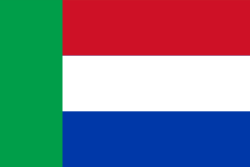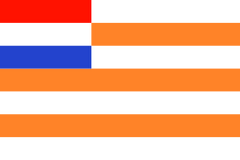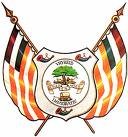British forces useless
Geskryf deur The Telegraph
Maandag, 20 Augustus 2007
Under attackWhen America's top commanders in Iraq held a conference with their British counterparts recently, Major General Jonathan Shaw - Britain's senior officer in Basra - was quick to share his views on how best to conduct counter-insurgency operations.For much of the last four years, the Americans in the room would have listened carefully, used to deferring to their British colleagues' long experience in Northern Ireland. This time, however, eyes that would once have been attentive simply rolled. Few were in the mood for a lecture about British superiority, when they fear that Downing Street's planned pull-out from Basra will squander any progress from their own hard-fought "troop surge" strategy elsewhere."It's insufferable for Christ's sake," said one senior figure closely involved in US military planning. "He comes on and he lectures everybody in the room about how to do a counter-insurgency. The guys were just rolling their eyeballs. The notorious Northern Ireland came up again. It's pretty frustrating. It would be okay if he was best in class, but now he's worst in class. Everybody else's area is getting better and his is getting worse."The meeting, called by General David Petraeus, the senior US officer who has the task of managing the surge, is emblematic of what is fast becoming a minor crisis in Anglo-American military relations.In Britain, Gordon Brown's government has tried to depict a quiet process of handover to Iraqi troops in Basra, which will see the remaining forces in the city withdraw to the airport in November.What US generals see, however, is a close ally preparing to "cut and run", leaving behind a city in the grip of a power struggle between Shia militias that could determine the fate of the Iraqi government and the country as a whole. With signs of the surge yielding tentative progress in Baghdad, but at the cost of many American lives, there could scarcely be a worse time for a parting of the ways. Yet the US military has no doubt, despite what Gordon Brown claims, that the pullout is being driven by "the political situation at home in the UK".A senior US officer familiar with Gen Petraeus's thinking said: "The short version is that the Brits have lost Basra, if indeed they ever had it. Britain is in a difficult spot because of the lack of political support at home, but for a long time - more than a year - they have not been engaged in Basra and have tried to avoid casualties."They did not have enough troops there even before they started cutting back. The situation is beyond their control."Quite frankly what they're doing right now is not any value-added. They're just sitting there. They're not involved. The situation there gets worse by the day. Americans are disappointed because, in their minds, this thing is still winnable. They don't intend to cut and run."The officer predicted that the affair could have long-lasting implications. "There will be a stink about this that will hang around the British military," he said.It is a view echoed by General Jack Keane, the architect of the surge strategy, who has just returned from Baghdad.Gen Keane, who has the ear of Vice President Dick Cheney and Stephen Hadley, President George W Bush's national security adviser, told The Sunday Telegraph: "It is disappointing and frustrating to see a situation in Basra that was once working pretty well, now coming apart. The situation there has been getting worse for some time."The depth of concern has grown since Gordon Brown's first prime ministerial visit to the US earlier this month, when he delivered a blunt message to Mr Bush that he would stick to plans which could see most of Britain's 5,500 troops gone from Iraq next year.The next political drama will come in four weeks when Gen Petraeus reports on the status of the surge strategy, which has successfully quelled violence in some areas but has failed to put an end to calls from Congress to bring the troops home.Britain's uncertain legacy in Basra will then be used as a political battering ram in Washington, as Mr Bush tries to win support on Capitol Hill.One US official said that recent US military intelligence reports sent to the White House had concluded that Britain had "lost" Basra, and that Pentagon war games were predicting a virtual civil war in the South once British troops left.He said: "When the White House makes the case for continuing the surge on the Hill they will say: 'Look what happened in Basra when the Brits went back to their barracks. We can't pull out now. Give us more time to get it right'."He added that White House officials had expected Mr Brown to strike a different tone on Iraq to that of Tony Blair, but that they were disappointed not to win a firmer agreement to keep British troops in place."They don't mind a change in rhetoric, but the bottom line for the president was to keep Basra as a British responsibility. He didn't get as much as he wanted. There was a whiff of double dealing about it all."As The Sunday Telegraph revealed last week, plans have been drawn up to send thousands of American troops into southern Iraq to take over the supervision of the vital supply route north from Kuwait, a task the British will bequeath when they leave.But the senior US officer warned that combat troops may also have to go into Basra itself to "protect the population" from violence between its numerous warring Shia militias - an extra burden as perilous as any in Baghdad.US Marine Colonel Gary Anderson, who has conducted recent Iraq war games for the Pentagon, said the situation Britain would leave behind in Basra "could be the most bloody part of the transition".He said: "The primary issue in Basra will be a struggle between various Shia factions for control of the region, and frankly the regular government in Baghdad as well. It will be between pro-Iranian factions and those that are more nationalistic. It's going to be nasty."Col Anderson said British troops "did the best they could", but added: "I'm not sure they did as good a job as they did traditionally. This isn't Northern Ireland. They thought they had a pretty good model but Iraq is a different culture."Michael O'Hanlon, of the Brookings Institution, a Washington think tank, added: "Basra is a mess, and the exit strategy attempted there has failed. It is, for the purposes of future Iraq policymaking, an example of what not to do."Basra has gone far towards revising the common American image of British soldiers as perhaps the world's best at counter-insurgency."
Laatste opdatering ( Maandag, 20 Augustus 2007 )
Volgende >
[ Terug ]
http://www.praag.org/mambo/index.php?option=com_content&task=view&id=823&Itemid=
Monday, August 20, 2007
Subscribe to:
Post Comments (Atom)







No comments:
Post a Comment